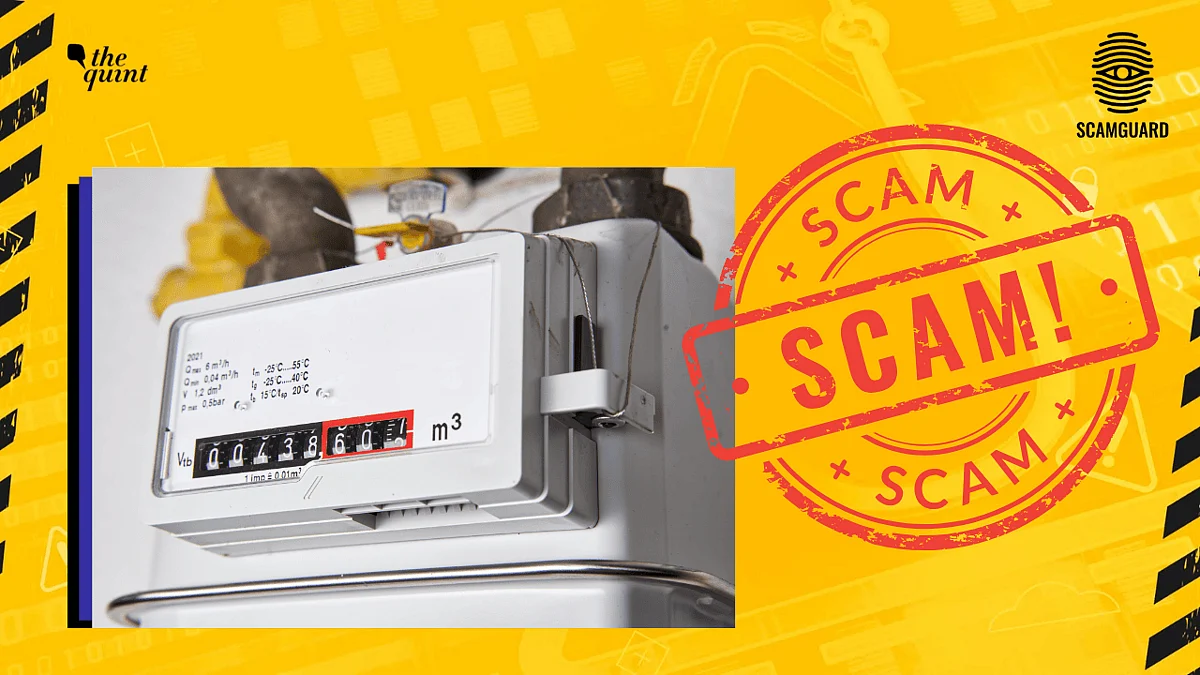'Gas Bill Aaya, Scam Laaya': How Fake Apps Can Uproot Your Savings
Scammers now make your believe your latest gas bill is here and the only way to access is through a mystery app.

advertisement
“Please download the new app to access your updated gas bill” - a credible-sounding statement from scammers who have successfully duped many Maharashtra Natural Gas Ltd (MNGL) customers over the past year. Posing as gas service employees, cybercriminals continue to deceive others with a fake “bill update” app sent via WhatsApp. Chaos ensues once the app is downloaded and installed on your phone. What’s next? A large sum of money is withdrawn from your account before you can react.
We analyse this utility bill scam circulating and targeting unsuspecting users, which you can avoid by staying alert.
Modus Operandi
False Communication: You receive a phone call, voicemail, SMS, or WhatsApp message from scammers impersonating a gas service employee. They inform you that the gas service app is currently not working, and to pay the latest bill, you must download a new app. They may even threaten to cut off the gas supply if the bill is unpaid. In some cases, they might give you a phone number where someone will assist you with the updated bill.
Malicious App: The scammer shares a fake app link or an Android Application Package (APK) file via WhatsApp for you to download on your phone. Once downloaded, they gain remote access to your phone. The app can also install spyware, such as a keylogger, that records everything you type on your device.
Verification or App Charge: You are then asked to pay a small bill update or app fee by entering your bank account or card details in the app. This information is recorded by the scammer, who can also see your OTPs for any transactions made.
Money Withdrawal: With your bank or card details and access to OTPs, scammers can authorise multiple transactions from your account and transfer money easily.
Red Flags
Receiving an unexpected call from a service provider threatening action despite your payments being up to date.
Unverified WhatsApp number sharing link to the latest app or extension for updated bills when you regularly receive them by post, or even through your registered account on the official website.
Service provider requesting a small fee to register, verify, or access your bills.
What To Do
Ignore: Any unsolicited messages asking you to download a file or click on a link for your latest bill are to be viewed with suspicion. Never install any file or follow a link sent by an unknown individual.
Official Channels: Utility bills can be accessed through authorised platforms such as the service providers’ official websites, walk-in centres, and digital payment gateways like GPay, PayTM, and others.
Decline: Avoid sharing your bank account, card information, or making any payments, even if the amount is small.
Alert: If you’ve installed the app or shared any information, immediately contact your bank to notify them of the potential threat. Ask to block or freeze your account and cards, and change your net banking passwords and mobile banking PIN. Keep monitoring your account for any unauthorized payments.
Report: Report the incident as soon as possible through a government portal such as Chakshu (https://sancharsaathi.gov.in/sfc/) and the national cybercrime helpline number—1930. You can also lodge a complaint with the local police station.
The Quint's Scamguard initiative aims to keep up with emerging digital scams to help you stay informed and vigilant. If you've been scammed or successfully thwarted one, then tell us your story. Contact us via WhatsApp at +919999008335 or email us at myreport@thequint.com. You can also fill out the Google form and help us take your story forward.
(At The Quint, we question everything. Play an active role in shaping our journalism by becoming a member today.)